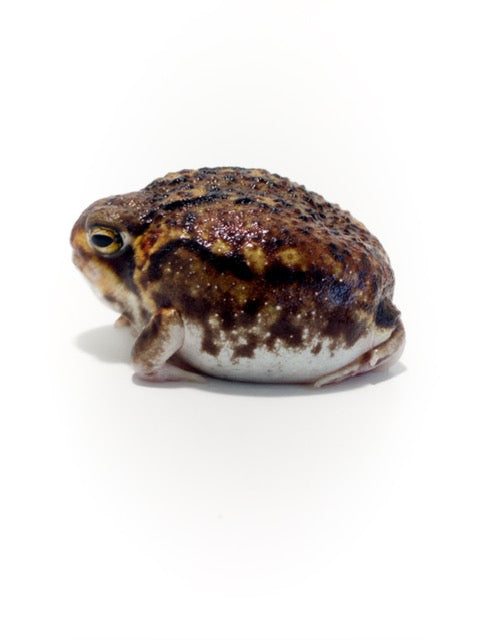Common Health Issues in Reptiles: Symptoms and Solutions
In the intricate world of reptile care, recognizing the usual wellness concerns that might influence these one-of-a-kind animals is extremely important in ensuring their wellness. Whether it's grappling with parasitical problems, browsing dehydration worries, or attending to skin conditions that materialize in subtle means, being attuned to the signs and geared up with the understanding of effective options is necessary for any reptile owner.
Breathing Infections
Respiratory infections in reptiles can substantially influence their overall wellness and call for timely interest from seasoned vets. These infections are commonly caused by fungis, infections, or germs and can show up with signs such as hissing, nasal discharge, open-mouth breathing, and sleepiness. In reptiles, respiratory infections can be specifically challenging to identify and treat due to their special composition and physiology. Vets typically depend on a mix of health examinations, analysis imaging, and laboratory examinations to accurately identify the underlying source of the infection.
Treatment for respiratory system infections in reptiles usually entails a combination of helpful treatment, such as preserving correct moisture degrees and temperature level slopes in the enclosure, as well as targeted drug to deal with the details pathogen in charge of the infection. It is vital for reptile proprietors to monitor their animals very closely for any kind of indicators of breathing distress and look for veterinary care at the earliest indicator of a concern. With prompt treatment and proper therapy, numerous reptiles can recover fully from respiratory infections and resume regular activities.

Metabolic Bone Disease
What variables add to the advancement of Metabolic Bone Condition in reptiles?
Metabolic Bone Disease (MBD) in reptiles is mainly caused by a lack of correct calcium, phosphorus, and vitamin D3 levels in their diet plan. Furthermore, inadequate exposure to UVB light prevents reptiles from manufacturing vitamin D3, which is important for calcium absorption and bone health.
Various other adding aspects to MBD consist of inappropriate temperature slopes within the reptile's environment, causing lowered metabolic rate and impaired calcium absorption. Inadequate moisture levels can additionally affect a reptile's ability to metabolize calcium properly. Specific reptile types have particular nutritional demands that, if not met, can enhance the probability of establishing MBD. Regular veterinary examinations, correct husbandry practices, and a balanced diet plan are essential to prevent Metabolic Bone Disease in reptiles.
Parasitical Invasions
Parasitical problems pose a substantial health and wellness danger to reptiles, impacting their overall health and calling for timely veterinary focus. Reptiles can be impacted by different bloodsuckers, including termites, ticks, interior worms, and protozoa. These parasites can trigger a variety of symptoms, such as fat burning, lethargy, skin irritability, looseness of the bowels, and even fatality if left unattended.
One usual bloodsucker found in reptiles is the mite, which can create skin irritation, anemia, and stress. Ticks are another outside bloodsucker that can transmit diseases and cause discomfort to the reptile. Inner parasites like worms and protozoa can bring about digestive system issues, lack of nutrition, and compromise the reptile's immune system.
To detect a parasitic invasion, a veterinarian might carry out fecal examinations, skin scrapings, or blood examinations. Treatment often entails deworming drugs, antiparasitic bathrooms, or in extreme cases, hospitalization. Preventative steps such as normal veterinary exams, correct health, and quarantine procedures for new reptiles can aid reduce the risk of parasitic problems and make sure the health of reptile pet dogs.
Dehydration and Hydration Issues
Dehydration in reptiles can considerably impact their wellness and wellness, demanding prompt intervention and ideal hydration administration. If left neglected, dehydration can lead to severe health and wellness concerns and also be fatal to the reptile.
To avoid dehydration, reptile owners ought to make sure that their animals have access to tidy water in all times. The water recipe need to be big enough for the reptile to soak in if needed, particularly for varieties that soak up water through their skin. Furthermore, keeping proper humidity levels in the reptile's enclosure and giving regular baths can aid prevent dehydration.
In instances of dehydration, it is vital to look for vet care immediately. A vet may administer fluids either orally or via injections to rehydrate the reptile. It is necessary to attend to the underlying cause of dehydration to avoid reoccurrence and ensure the reptile's general well-being.
Skin Ailments

Conclusion

Breathing infections in reptiles can significantly impact their general health and require prompt interest from experienced veterinarians (rain frog for sale). Preventative actions such as normal veterinary check-ups, appropriate health, and quarantine treatments for new reptiles can assist decrease the threat of parasitical problems and ensure the well-being of reptile animals
If left unattended, dehydration can lead to significant health and wellness problems and even be fatal to the reptile.
Consistently checking your reptile for any kind of changes in skin shade, appearance, or appearance can aid in early discovery and treatment of over here skin disorders, promoting the overall health and wellness and health of your flaky friend. - rain frog read this for sale
In final thought, reptiles are prone to various wellness issues such as respiratory system infections, metabolic bone illness, parasitic infestations, dehydration, and skin conditions.